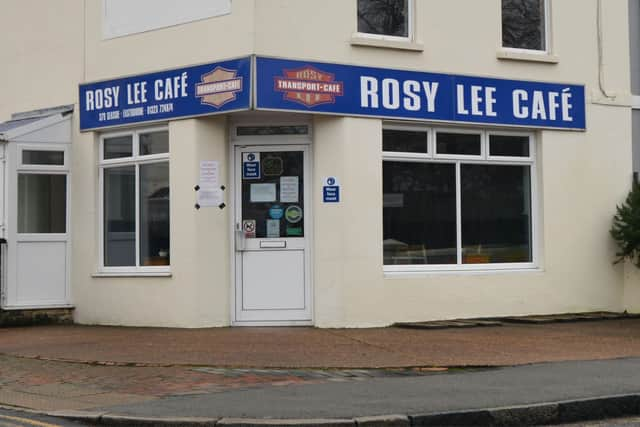Eastbourne cafe wants to start serving alcohol
and live on Freeview channel 276
On Wednesday (May 11), an Eastbourne Borough Council licensing panel is due to consider an application to begin serving alcohol at the Rosy Lee Cafe in Seaside.
According to the applicant the proposals come as part of plans to rework the business into a cafe, bar and restaurant.
Advertisement
Hide AdAdvertisement
Hide AdAs part of its application, a spokesman for the cafe said: “The premises are currently a cafe, which have stayed the same for the past 20 plus years. We intend to turn it into a much nicer and comfortable cafe, bar and restaurant.


“The premises already open some evenings for private functions and to help grow the evening side of the business, we need a licence to compete with our competition.
“Customers these days expect to be able to have a drink with their meal and so that is why we are applying for a licence, so they may have the choice of an alcoholic or non-alcoholic drink with their food.
“We also want to be able to sell alcohol to customers who wish to take it home with them.”
Advertisement
Hide AdAdvertisement
Hide AdIf the licence were granted as applied for, the business would be able to sell alcohol for consumption both on and off site between 7.30am and 11pm, seven days a week.
While no objections have been raised by Sussex Police or any other local authorities with licensing responsibilities, the hearing has been called in light of concerns from a local resident.
The objector, whose name is redacted in council papers, argues the licence would contribute to existing issues of noise and anti-social behaviour in the area.
The resident says they have particular concerns about people congregating to drink in the basketball courts opposite the business.
According to council papers a further objection was received but was not considered to be relevant by officers. This, officers say, was because it did not relate to licensing concerns.